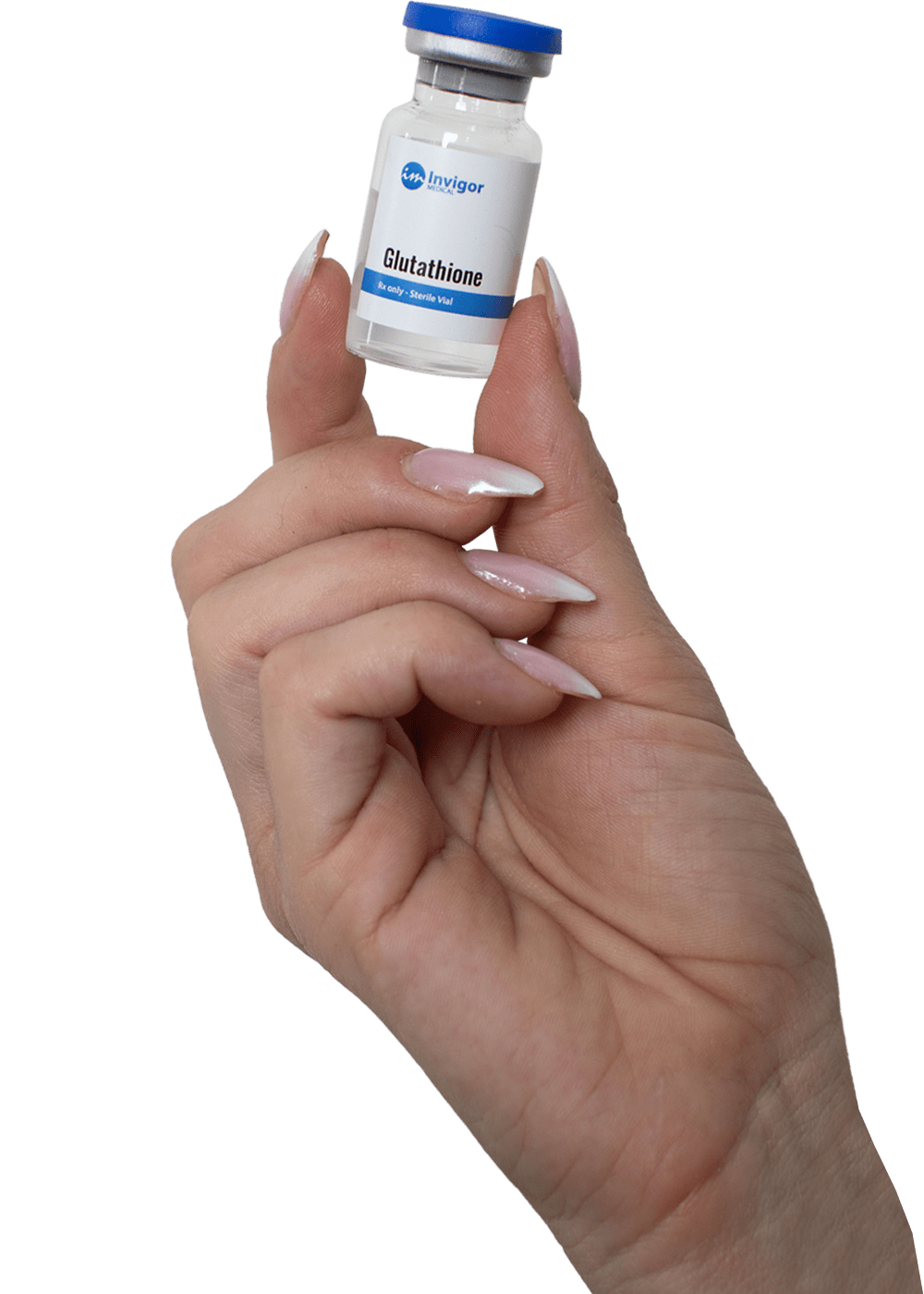Looking for supplements that may help your body stay healthy? You’ve probably come across glutamine and glutathione.
Both are important for your health, but they do different jobs.
Let’s break down what they are, what they do, and how they might help you feel your best.
Table of Contents
What is Glutathione?
Think of glutathione as your body’s master antioxidant. Antioxidants are like tiny superheroes that protect your body from damage caused by free radicals.
Your body also makes glutathione, and it’s found in some foods like fruits, vegetables, and certain meats.
Potential Benefits of Glutathione:
Glutathione is a powerhouse when it comes to keeping you healthy:
- Super Protector: It’s great at fighting off free radicals, which can damage your cells and lead to health problems. This may help slow down aging and may keep your cells healthy.
- Detox Helper: Glutathione helps your liver clean out harmful substances from your body, like toxins and pollution.
- Immune Booster: Just like glutamine, glutathione helps your immune system fight off infections.
- Better Energy: Glutathione works by protecting your cells, reducing their oxidative stress, and helping them produce more energy.

How Glutathione Affects the Body
When your body has enough glutathione, it’s like a well-oiled machine. Your cells are protected as glutathione may reduce oxidative stress on cells in your body.
Glutathione also plays a role in detoxifying by supporting the mitochondrial function (the energy powerhouse of the cell), glutathione may help your body feel more energized.
On the other hand, if your glutathione levels are low, your body might be more open to damage, and you might feel tired or get sick more easily.
Foods High in Glutathione
The following foods are high in glutathione:
- Asparagus
- Avocado
- Broccoli
- Cabbage
- Cucumber
- Garlic
- Green beans
- Green tea
- Kale
- Leeks
- Meats
- Mushrooms
- Onions
- Papaya
- Pomegranate juice
- Spinach
- Whey
Speak with a doctor today

What is Glutamine?
Imagine glutamine is an amino acid, which means it’s a building block for protein in the body.
Your body makes glutamine on its own, and it’s found in many foods you eat, like meat, dairy, and some vegetables.
Potential Benefits of Glutamine:
- Healthy Gut: It’s important for keeping your intestines healthy. It helps the cells in your gut grow and repair themselves, which is key for good digestion and absorbing nutrients.
- Muscle Repair: If you work out or have an injury, glutamine may help your muscles recover and grow. In a study, men taking glutamine supplements outlasted those who didn’t and reported less muscle soreness.
- Strong Immune System: Glutamine helps your immune cells work properly, making it easier for your body to fight off sickness. It is used by white blood cells to fight off infections in the body.
- Brain Power: It may play a role in how your brain works, though we’re still learning all the ways it might help.

Foods High in Glutamine
Foods that are high in glutamine include the following:11
- Milk
- Beef
- White rice
- Corn
- Eggs
- Tofu
Overall, meat and dairy are your best sources of dietary glutamine.
Which is Better?
This isn’t really a question of “better,” but more about what your body needs. Think of them as teammates, each with a different but important job.
- Glutamine is fantastic for gut health, muscle recovery, and overall immune support.
- Glutathione is your top antioxidant, great for protecting cells and detoxing your body.
Sometimes your body might need more of one than the other, depending on your health and lifestyle.
For example, if you have gut issues, glutamine might be a good focus. If you’re exposed to a lot of pollution, glutathione could be very helpful.








